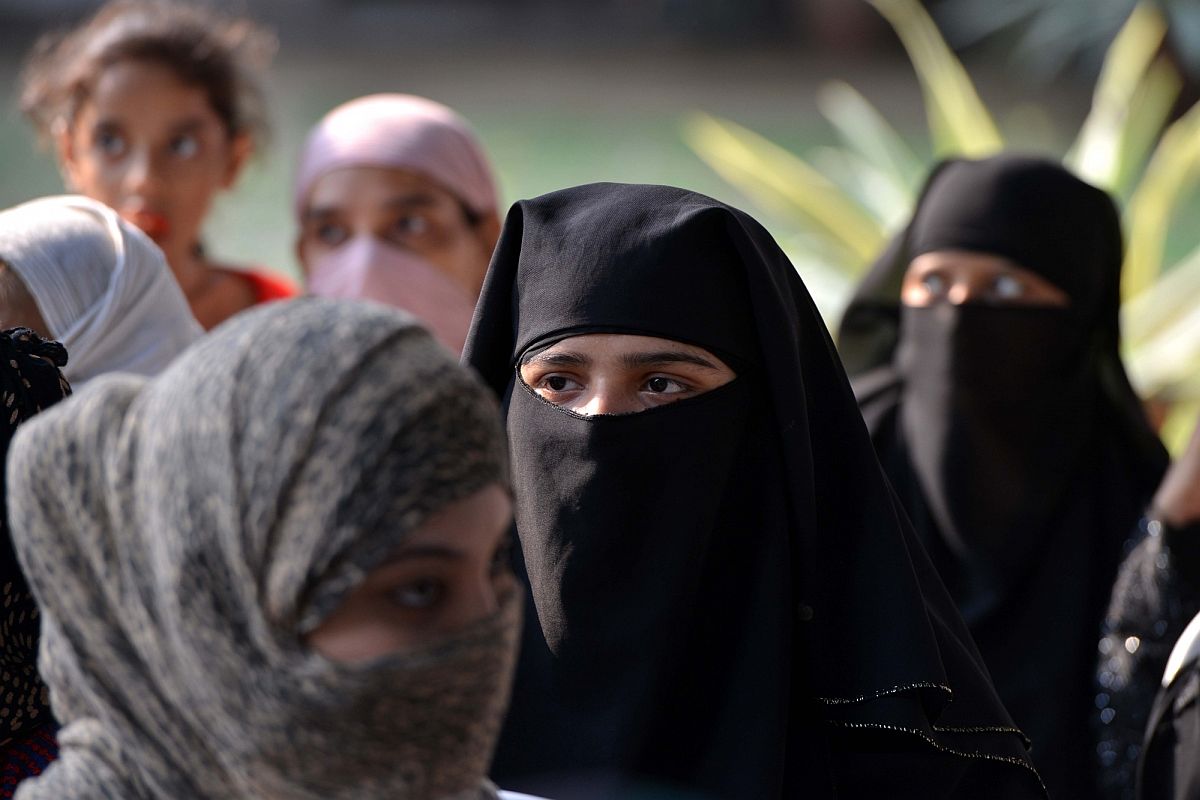BJP and NDA anticipate strong lead in UP’s second phase of LS polls: BJP
From the NDA, seven BJP candidates and one RLD candidate are contesting on these seats.
As per the law, the practice of instant divorce through triple talaq among Muslims is now a punishable offence that entails imprisonment of up to three years.

After the Lower and the Upper House passed the Triple Talaq Bill, President Ram Nath Kovind on August 1, gave his go-ahead which made the practice of giving instant triple talaq a criminal offence. (Representational Image: IANS)
Since the enactment of the law which makes the practice of instant divorce a punishable offence, Uttar Pradesh is witnessing a spurt in triple talaq cases, with 216 FIRs filed by Muslim women.
The maximum number of 26 such cases have been registered in Meerut followed by Saharanpur and Shamli where 17 and 10 police cases have been lodged respectively, a senior police official told news agency Press Trust of India. These three places in western Uttar Pradesh have a sizeable Muslim population.
“In UP, women given triple talaq are coming out in large numbers to register FIRs against their husbands. Within three weeks (till August 21) of implementation of the Muslim Women (Protection of Rights on Marriage) Act, 2019, as many as 216 FIRs have been filed in the state so far,” he said.
Advertisement
In eastern Uttar Pradesh, the highest number of 10 FIRs were registered in Varanasi. Some of the main reasons behind the criminal offence of triple talaq are dowry, property dispute and domestic violence as per the FIRs lodged.
However, except in two-three cases, no arrest has so far been made in the over 200 cases lodged. In a bid to ensure effective implementation of the Act, the Uttar Pradesh Police is contemplating to arrest the accused.
“To ensure that the Act is followed in letter and spirit and justice is given to Muslim women, we are examining as to why we should not arrest those involved in giving triple talaq. We will be doing that in some districts,” Director General of Police OP Singh told PTI.
He said very soon the police will also be going for “impact analysis” to ensure justice to Muslim women. “Very soon, we will be calling a few sample cases to assess the impact to ensure justice to the victim women,” he said. In some cases, triple talaq has been given over phone, through SMS, or directly to the women.
In a case in Lucknow, a man allegedly gave triple talaq to his wife right inside the civil court premises in the presence of her advocate after she refused to accept a chewing gum from him, police said.
The woman was talking to her advocate when her husband offered her a chewing gum which she refused, throwing Rashid into a fit of rage so much so that he divorced his wife, uttering talaq three times.
The triple talaq law came into effect retrospectively from September 19, 2018, after President Ram Nath Kovind gave his assent to the legislation that makes giving instant oral triple talaq or talalq-e-biddat a criminal offence with provisions of jail term up to three years.
The new law makes void and illegal talaq-e-biddat or any other similar form of talaq having the effect of instantaneous and irrevocable divorce pronounced by a Muslim husband.
It also makes it illegal to pronounce talaq three times in spoken, written or through SMS or WhatsApp or any other electronic chat in one sitting.
The law says any Muslim husband who pronounces the illegal form of talaq upon his wife shall be punished with imprisonment for a term which may extend to three years, and shall also be liable to fine.
The aggrieved woman is entitled to demand a maintenance from her husband for herself and her dependent children under the Act.
The Supreme Court has agreed to examine if the newly-enacted Triple Talaq law is valid. As per the law, the practice of instant divorce through triple talaq among Muslims is now a punishable offence that entails imprisonment of up to three years.
The apex court on August 23 issued a notice to the Centre seeking its response on three petitions which had challenged the constitutional validity of the Muslim Women (Protection of Rights on Marriage) Act, 2019.
A bench of justices NV Ramana and Ajay Rastogi issued notice the Centre on a batch of petitions which has sought to declare The Muslim Women (Protection of Rights on Marriage) Act 2019 as “unconstitutional” on grounds that it allegedly violates the provisions of the Constitution.
Advertisement